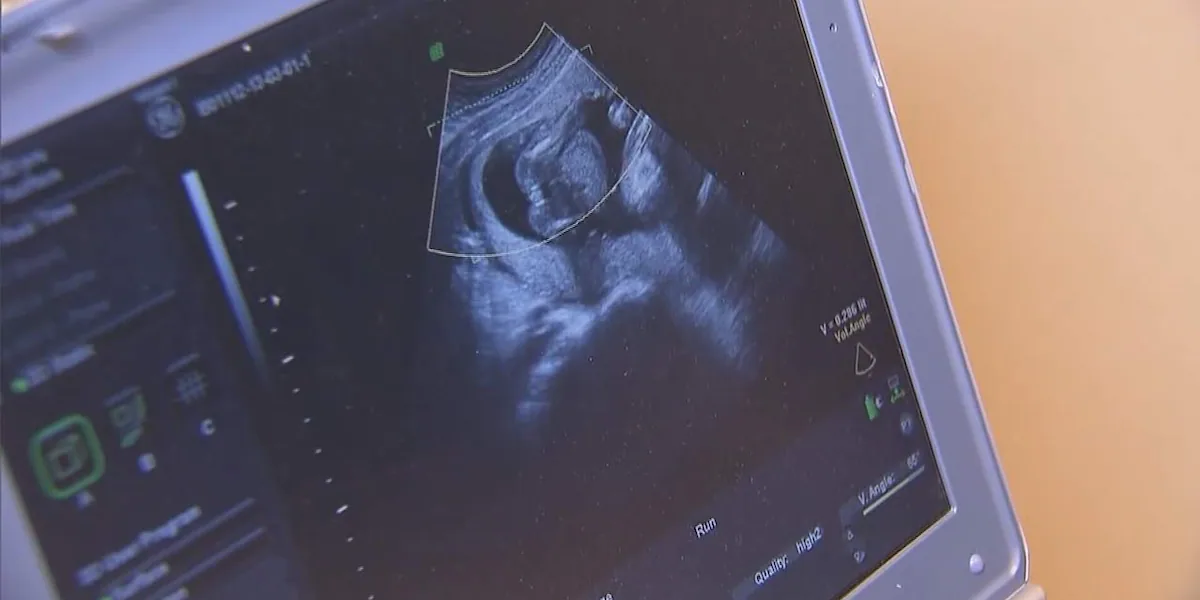
CHARLESTON, S.C. (WCSC) – South Carolina Republicans are once again targeting the state’s abortion law, aiming to reduce already limited abortion rights even further.
The Senate Medical Affairs Subcommittee is meeting on Wednesday for a public hearing on the newest proposal that would practically ban most abortions after conception.
Currently, abortions are only allowed before a fetal heartbeat is detected. That usually occurs around six weeks of pregnancy. There are exceptions for the life of the mother, rape, incest and fatal fetal anomalies.
The new bill, Senate Bill 323, changes the definition of abortion, conception and contraception and removes the exception for rape and incest. It does preserve the exception for the life of the mother. It also eliminates exceptions for fatal fetal anomalies.
One of the sponsors of the bill, Sen. Richard Cash from Anderson County, says the heartbeat bill doesn’t align with a belief that life starts at conception. He says it’s a matter of principles.
“If you believe that a human life begins at fertilization and you believe there are thousands of unborn babies being killed by abortion in this state, then you can’t say the heartbeat bill is good enough,” Cash said. “It’s not.”
The American Civil Liberties Union of South Carolina has already called the bill “an egregious attack on our autonomy, privacy, speech, and safety.”
In total, the bill constitutes a near-total abortion ban and would penalize anyone who helps a woman research or obtain an abortion.
What’s in S. 323:
Abortion is defined as anything with the intent of terminating a “clinically diagnosed pregnancy.”
Clinically diagnosed pregnancy is defined as the detectable presence of human chorionic gonadotropin, a pregnancy hormone detectable in urine. The Cleveland Clinic reports HCG hormones can be detected as early as 6 days after conception.
Outlaws Abortifacient drugs or chemicals, most notably drugs like mifepristone.
Removes exceptions for rape and incest.
Creates a new felony legal charge for anyone who aids or abets an abortion. Violators could face up to 30 years in prison.
Criminalizes people or organizations that provide abortions.
Criminalizes giving money to organizations that provide abortions.
The bill also prohibits providing any information on abortion in person or online, transporting pregnant women to other states to receive abortions, and requires schools to include a high-quality video showing the stages of growth after conception in the sexual education curriculum. The bill specifically says the video should be similar to “Meet Baby Olivia”, a video produced by the pro-life group Live Action.
Killing an infant in the womb would not be considered a homicide charge, but similar penalties could be applied for prohibited abortion activity. The bill does provide immunity for women who are coerced into an abortion if they testify against their abuser.
You can watch the live stream of the subcommittee hearing here. The public hearing will start at 9:30 a.m. with expert testimony at 1 p.m.
Legal Challenges
The bill is expected to face challenges in the state house politically, but it will also likely face legal challenges if it’s signed into law.
Attorney Tom Winslow says the bill would challenge the state Supreme Court’s holding that abortion is a right encapsulated in the state’s right to privacy, burned into the state’s constitution.
“It was determined in January 2023. Women have a right to abortion under our constitution. But what it does not do is define what that right is,” Winslow said. “It’s not so much a challenge to abortion; it’s a challenge to the interpretation of privacy inside the Constitution.”
However, Winslow says the current Supreme Court is more conservative than the Supreme Court of 2023, and overturning a previous ruling is not unheard of.
Cash says he doesn’t see any reason why the Supreme Court wouldn’t uphold his bill.
“If we can create the heartbeat law that makes the heartbeat a determining factor, I don’t see why the clinically diagnosable pregnancy can’t be a determining factor,” Cash said. “We’re just moving it back.”
Outside of a challenge to its constitutionality, Winslow says there are certain parts of the bill that would need to clear a legal hurdle. In particular, Winslow says criminalizing donating money to a group that supports abortion rights could run into issues with the First Amendment.
“The federal Supreme Court has said political contributions are free speech, right? Like you can’t tell me how to contribute my money or not contribute my money to a Republican or Democrat or a group because that’s free speech,” Winslow said. “And so as such, you can’t tell me not to support them as long as it’s a legal activity. Again, at the same time, I have a problem with enforcement, right? It’s subjective.”
Another issue in the bill that is likely to face legal questions is any provision that regulates the activity of someone outside of the state’s boundaries. Winslow says a similar law in Texas is currently being challenged after a New York doctor mailed abortion pills to a Texas resident.
“It’s like going to Colorado. You can go to Colorado and smoke marijuana if you want to. You just can’t do it in South Carolina. Right?” Winslow said. “How do I, as a South Carolina solicitor, charge a pharmacist who’s acting legally in New York, where they prescribe the medication, with this new criminal law in South Carolina?”
The hearing on Wednesday is the start of the process for S. 323, but the legislative session doesn’t fully start until January.



